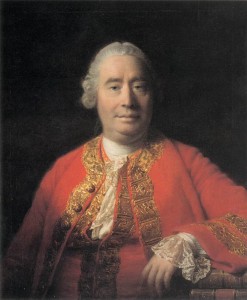The liberal case for conservatism
 Let us assume, for the sake of argument, that the fundamental axiom of liberal ideology is true. Namely, that within the nature of man lies inherently a set of rights. To further elucidate upon this principle, it shall be asserted that this property can be deduced from the rational nature of man, thus negating any criticism of anti-Naturalist origins.Â
Let us assume, for the sake of argument, that the fundamental axiom of liberal ideology is true. Namely, that within the nature of man lies inherently a set of rights. To further elucidate upon this principle, it shall be asserted that this property can be deduced from the rational nature of man, thus negating any criticism of anti-Naturalist origins.Â
From this simple principle follows that the rights of man are necessarily entangled with his responsibilities. In other words, they are but two sides of the same coin. For over whatever a man asserts a right, so implicitly does he assert a responsibility. If a man has declared a right to his own property, for example, then he has taken on the responsibility for protecting that property. To whom else could a man ascribe the responsibilities over that which he has dominion?
It is fair, I think, to concede that within each man lies the understandable urge to be free of any unjustifiable coercion (i.e. tyranny). However, even the most fervent libertarian would concede that a man’s rights cannot be viewed as infinite. There exist any number of circumstances in which to, with utter certitude, restrict the liberties and permissions of an individual. Ignoring the fleeting, obvious, and mundane, the most essential of these is the very foundation of man’s insistence of rights, his rational character.Â
Man’s rationality is innately limited, but even more, each man’s rational ability varies from that of other men. Thus it could be stated that a man’s rational abilities (hereby denoted R(a)) and the degree of justifiable coercion to be held against him (hereby denoted C) can be stated to have an inverse proportionality such that R(a)C = K (whereby K is some constant). Said formula implies that the essential question to be answered is what is the appropriate proportionality constant (or if you will, the best size of a RaCK)?
The only sensible and realistic means of achieving a fair answer to this question is through as close to a complete consensus as is humanly possible. A mere majority, or even substantial majority, is insufficient to answer such an important decision. The question which obviously follows is how can such a consensus be formed on this K -> R(a)C = K expression (or if you will, how does one fill the KRaCK)?Â
Since the values, inclinations, goals, and worldviews vary to such a great degree among men, the only option would be for like minded individuals to congregate into enclosed communities, each of them with their own standards. Because these aspects of one’s mind are tied so intimately to one’s genetics, the separation of individuals based purely on these elements will naturally lead to separation by genetic make-up. Essentially, the maintenance of a free society rests on the basis of ethno-nationalism.
Furthermore, we can say that because the maintenance of ethno-nationalist communities are of such immanent importance to securing the rights of men, any attempt to subvert these structures is antithetical to liberal ideology. Removing the means of securing rights is no different from removing the rights themselves. That throws free movement and open borders immigration right off the table.
From this vantage point, we can view conservatism (ethno-nationalism and organic societies) as a meta-political foundation necessary for the security and propagation of any political structure. Replace liberalism with any (barring the totally insane) ideology and the same conclusion can be reached. It is thus demonstrated (to the unfortunate degree possible in such a limited context), that the contemporary values associated with liberalism are directly at odds with the values and societal structures necessary for it to function and flourish.









